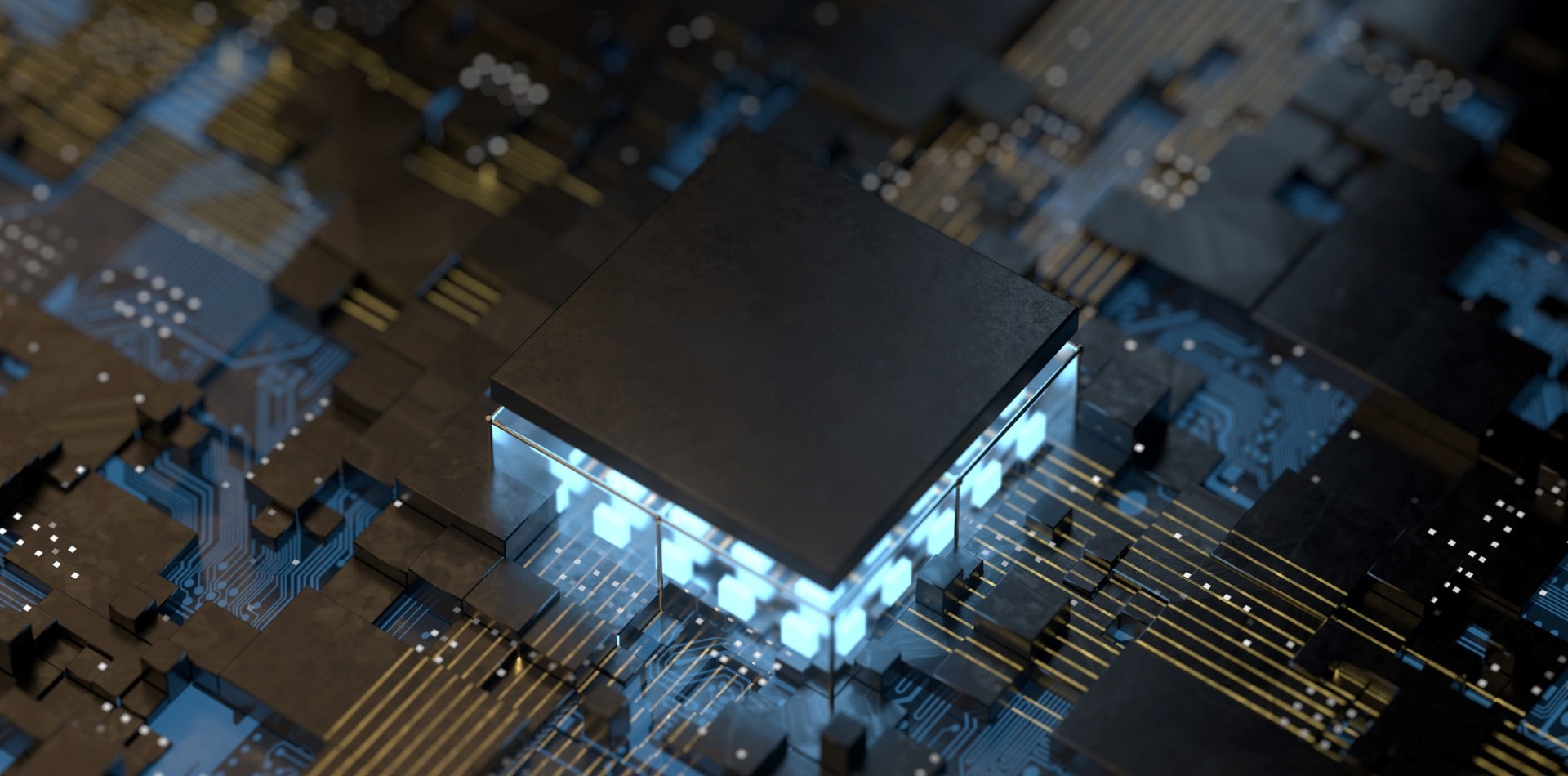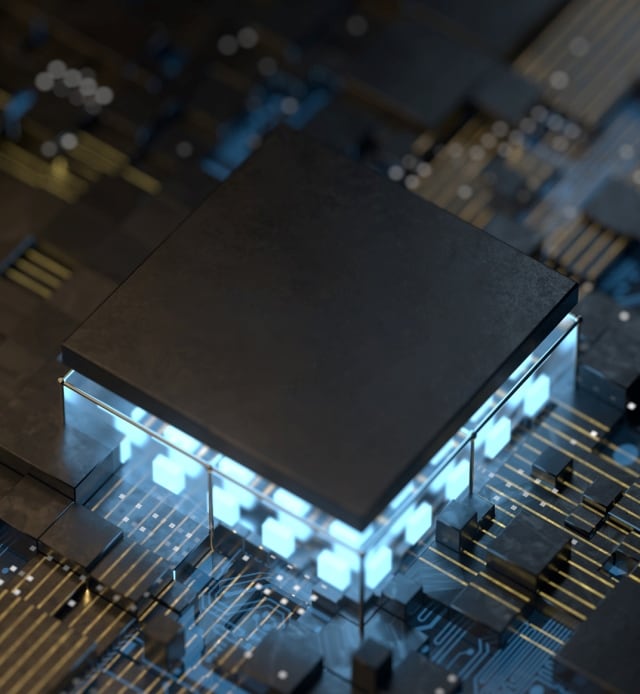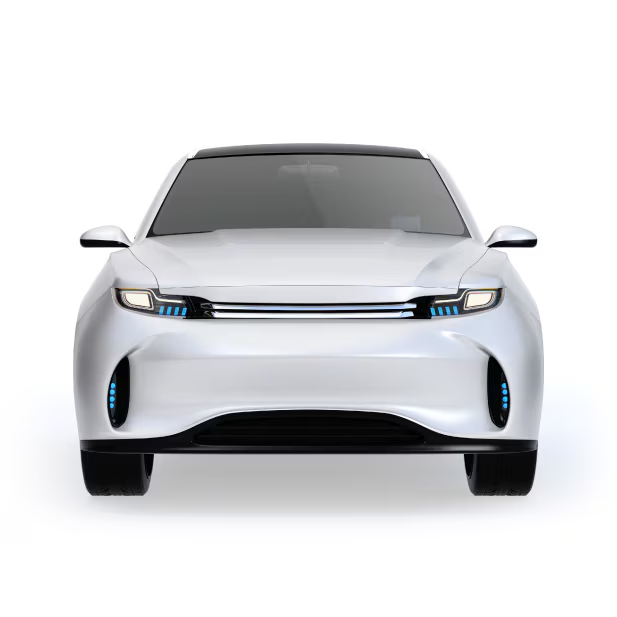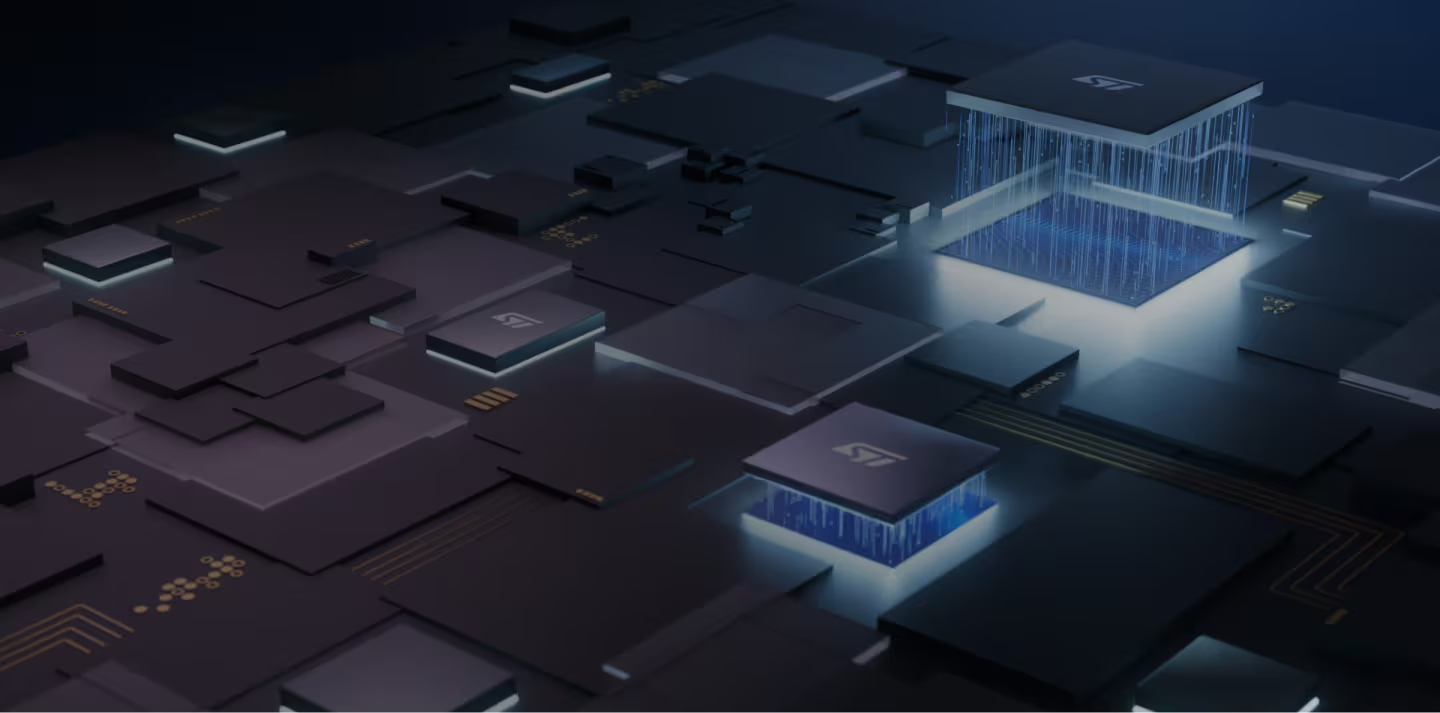Artificial intelligence
at the edge


Moving intelligence from the cloud
AI is used today in an ever-wider range of applications. It impacts the services we use as well as the devices and machines we interact with every day. Much of this AI relies on cloud computing, using powerful remote data centers, which process the data collected by local devices.
Edge AI deploys AI algorithms and models directly on devices such as Internet of Things (IoT) devices and embedded industrial and automotive systems. This approach enables real-time processing and analysis of data at the source. It paves the way for genuinely autonomous intelligent devices, capable of rapidly deciding and acting in an adaptive way.
Deploying AI at the edge offers several advantages over the cloud approach. It provides speed and ultralow latency, much lower data transmission loads, and significantly improved security. It significantly reduces power thanks to inference algorithms running at milliwatts, or even microwatts, on edge devices vs watts in the cloud. And it preserves privacy.
Edge AI opens many new possibilities for device and service creators across all markets enabling new applications at a fraction of the cost of using the cloud.
ST helps customers make
AI at the edge a reality
Whether you are a specialist or just starting to use edge AI, ST has solutions for you.
We invest in research, innovation and development activities to create what our customers need to harness the power of edge AI. We also actively participate in the tinyML community to further improve machine learning efficiency in small IoT devices.
Our portfolio of products and design tools allow embedded developers to quickly deploy AI on ST microcontrollers, microprocessors, and smart sensors, making AI more efficient and sustainable.
And it's just the beginning. Our latest technology breakthroughs are a game changer for edge AI.
Edge AI on STM32 microcontrollers and microprocessors
STM32 edge AI solutions open the door to many new application possibilities. We have developed the cutting-edge ST Neural-ART Accelerator, a proprietary neural processing unit (NPU) that delivers exceptional efficiency in handling AI tasks. We also offer user-friendly online tools and software, allowing embedded developers to create, evaluate, and deploy machine learning algorithms on STM32 microcontrollers and microprocessors in a fast and cost-effective way.



Edge AI on sensors
ST smart sensors embed a machine learning core or an advanced specialized digital signal processor (DSP) for edge AI, enabling context awareness in many applications, from industrial equipment to IoT devices. This allows sensors to process information and to share only meaningful data with the microcontroller. These smart sensors reduce power consumption at system level, further enhancing efficiency.



Edge AI in automotive applications
Engineers can enhance safety, efficiency, and the overall driving experience, by using our SPC5Studio.AI to convert, analyze, and deploy automotive neural network models on SPC58 microcontrollers. The edge AI plugin tool for the latest Stellar E microcontrollers is available upon request.



Watch more
Unleashing the power of edge AI with products and enabling technology
STM32 edge AI solutions
IRMA from Oxytronic, made with
NanoEdge AI Studio
STM32Cube.AI Developer Cloud: 4 steps to easily test and embed your neural network model
Discover ST's MEMS sensor with an intelligent core
How smart sensors make industrial applications more reactive and power efficient
Leveraging edge AI on the LSM6DSV16BX sensor for TWS in wireless earbuds
ISPU self-learning for personalized fitness training
Road state monitoring using edge AI
Read ST's latest publications on edge AI
| Title | Authors | Publication | |
|---|---|---|---|
| Improving Robustness Against Adversarial Attacks with Deeply Quantized Neural Networks | Ferheen Ayaz, Idris Zakariyya, José Cano, Sye Loong Keoh, Jeremy Singer, Danilo Pau, Mounia Kharbouche-Harrari | IJCNN | |
| Ultra-Tiny Neural Network for Compensation of Post-soldering Thermal Drift in MEMS Pressure Sensors | Gian Domenico Licciardo, Paola Vitolo, Stefano Bosco, Santo Pennino, Danilo Pau, Massimo Pesaturo, Luigi Di Benedetto, Rosalba Liguori | IEEE ISCAS | |
| SRAM-Based All-Digital Up to 4b In-Memory Computing Multi-Tiled NN Accelerator in FD-SOI 18nm for Deep-Learning Edge Applications | G. Desoli et al. | IEEE ISSCC | |
| End to End Optimized Tiny Learning for Repositionable Walls in Maze Topologies | Danilo Pau, Stefano Colella and Claudio Marchisio | IEEE ICCE | |
| TinyRCE: Forward Learning Under Tiny Constraints | Danilo Pau, Prem Kumar Ambrose | tinyML® Research Symposium | |
| A 0.8 mW TinyML-Based PDM-to-PCM Conversion for In-Sensor KWS Applications | Paola Vitolo, Rosalba Liguori, Luigi Di Benedetto, Alfredo Rubino, Danilo Pau, Gian Domenico | Licciardo Conference paper |
Ferheen Ayaz, Idris Zakariyya, José Cano, Sye Loong Keoh, Jeremy Singer, Danilo Pau, Mounia Kharbouche-Harrari
IJCNN
Gian Domenico Licciardo, Paola Vitolo, Stefano Bosco, Santo Pennino, Danilo Pau, Massimo Pesaturo, Luigi Di Benedetto, Rosalba Liguori
IEEE ISCAS
SRAM-Based All-Digital Up to 4b In-Memory Computing Multi-Tiled NN Accelerator in FD-SOI 18nm for Deep-Learning Edge Applications
G. Desoli et al.
IEEE ISSCC
Danilo Pau, Stefano Colella and Claudio Marchisio
IEEE ICCE
Danilo Pau, Prem Kumar Ambrose
tinyML® Research Symposium
Paola Vitolo, Rosalba Liguori, Luigi Di Benedetto, Alfredo Rubino, Danilo Pau, Gian Domenico
Licciardo Conference paper

